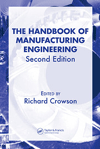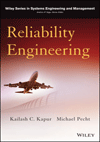
Writing in the March 2001 issue of Prism, published by the American Society for Engineering Education (ASEE), Margaret Mannix notes that it is no secret there is a paucity of women in engineering. She cites the recent report of the Congressional Commission on the Advancement of Women and Minorities in Science, Engineering and Technology that starkly reminded engineering educators that growth has not only been dismal, but stagnant. www.asee.org The best and most obvious way for engineering schools to attract female students is by having female engineering faculty. For example, Mannix reports that Tufts University College of Engineering has a faculty that is 16 percent female, and nearly 40 percent of the engineering graduates are women. You can find more from ASEE on this subject, including this report, by visiting its Web site at www.asee.org.
The National Society of Professional Engineers (NSPE) stepped up to this issue on Feb. 22, 2001, by launching "Introduce a Girl to Engineering Day" during National Engineers Week (EWEEK). The goal was to encourage 1 million girls in K-12 to pursue engineering, mathematics and science. Louis V. Gerstner, CEO of IBM, announced Girl Day at the EWEEK Future City competition national finals in Washington, and his announcement went global via a Web cast.
By any account, the inaugural Girl Day was a resounding success, with more than 90 organizations signing up to participate. The National Academy of Engineering hosted a live Web chat so interested girls could "speak" with women engineers. NASA presented a virtual Girl Day, featuring NASA engineers and video clips. You can read a lot more about Girl Day, and learn how to get involved, on EWEEK's Web site at www.eweek.org/2000/news.
Prism asks "Why not engineering?" There's no good answer. It would be easy to accuse the educational community of failing in its responsibility, but this would be unfair as well as basically untrue. Truth be told, we've probably all "failed" to some extent, but lamenting that will accomplish nothing. Let's just start asking "why not engineering" in a way that will encourage the distaff side of our nation to consider an engineering career. When those who have the talent and the desire move into engineering careers, everyone will come out a winner.




